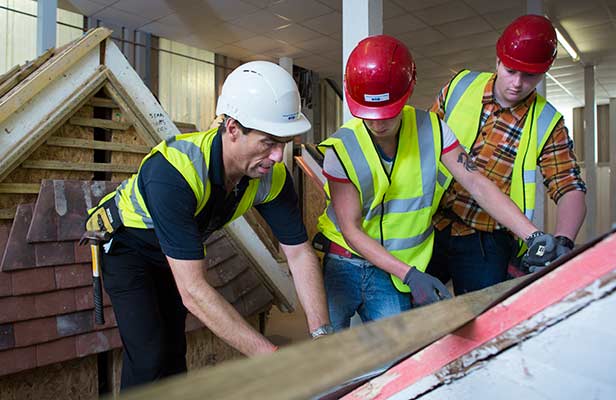Tradesmen skills shortages urges more collaboration between industry partners
This post has already been read 2911 times!
Greater collaboration between house builders and their subcontractors is essential if the industry is to address its skills shortage and continue to increase output in the coming years a new report reveals.
The report highlights the need for collaboration between large contractors and the housing industry with subcontractors encouraged to promote higher visibility on future work; prompt payment; and sharing training resources will help enable them to grow and so increase industry capacity.
The report available here is the first major piece of work to be undertaken for the new Home Building Skills Partnership (HBSP), a pan industry body set up by the Construction Industry Training Board (CITB) and Home Builders Federation (HBF) in June to ensure the industry has the skills it needs to deliver.
Whilst housing output has increased by around one-third in just two years to around 155k homes a year, following five years of general decline, we are still some way short of the estimated 230k homes a year required – meaning tens of thousands more skilled workers will be required.
With the industry reliant on subcontract labour, the report says that to achieve this, house builders need to shift from a ‘procurement’ to a ‘development’ approach to its supply chain.
The report is based on research conducted with 20 large UK housebuilders and 204 subcontractors, who in total employ up to 150,000 workers. It reveals that:
- Two thirds of subcontractors want to grow through house building
- Builders and subcontractors have mutual objectives – profitable work, positive reputations, safe and productive sites
- 57% of subcontractors are planning to increase direct employment in the next year
- Only 50% of subcontractors are confident they can meet house builders needs
- Critical shortages include ground workers, plumbers, electricians, bricklayers, carpenters, plasterers, roofers and painters
- Without greater collaboration supply chain capacity increases will be limited
The report goes on to make a series of recommendations. These include for;
- Housebuilders to give greater visibility to their future pipeline of work at regional levels; to reduce the half year and year end pressures; pay promptly; make the training infrastructure they have in place available for subcontractors; consider mandating subcontractor training.
- Subcontractors to proactively engage with house builders and the HBSP over workloads, recruitment and training.
The report calls on the HBSP and CITB to take the recommendations in the report forward and develop solutions that will lead to increased cooperation and more joined -up training processes that will allow the industry to grow, and in particular, increase the number of apprentices.
Speaking at the report launch, John Tutte, chair of the HBSP said: “The industry faces a huge challenge in the years ahead as it looks to attract and train the people required to build the homes the country needs. The relationship between homebuilders and subcontractors is absolutely critical in terms of how the industry recruits and delivers and it is imperative we work more closely together.
“The report provides some key insight into how we can collaborate more effectively to deliver improved training processes and ultimately increase capacity. We will now work closely with industry stakeholders to act on the recommendations as part of our wider drive to tackle the skills challenge we face.”
Steve Radley, Director of Policy at CITB, said: “This research provides new insight into homebuilding supply chains and how they work, which is a critical first step to tackling the skills challenge in homebuilding.
“The new partnership and the evidence it has brought together offers the best opportunity in years to foster much closer working in the sector, which will improve skills, help companies become more productive and cost effective, and ultimately help us build the homes we need.”


